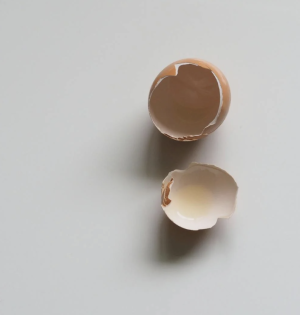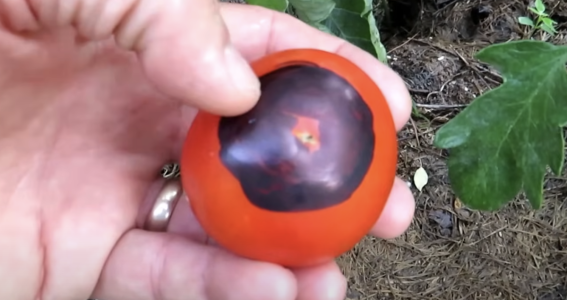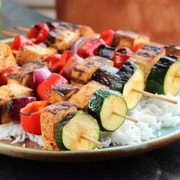Don’t throw away those eggshells—here’s why your garden will thank you
By
Veronica E.
- Replies 0
If you’re like most people, you probably crack a few eggs for breakfast and toss the shells straight into the trash without a second thought.
But what if those shells could be doing more than cluttering your bin?
Believe it or not, eggshells are one of the most overlooked yet effective garden boosters hiding in your kitchen.
Packed with nutrients that help plants grow strong and healthy, they can be put to work in everything from vegetable patches to houseplants.
Before you throw them out, here’s why eggshells are garden gold—and how to use them.

Why eggshells are good for plants
Eggshells are made mostly of calcium carbonate, the same compound that helps strengthen human bones.
For plants, calcium is essential for cell walls and overall growth.
Eggshells also contain small amounts of potassium and phosphorus, which are equally important for vegetables and leafy greens.
Garden experts agree that crushed shells enrich soil naturally, improve balance in compost, and help prevent common problems like blossom end rot in tomatoes, peppers, and eggplants.
Also read: These signs will tell you if your plants are begging for more sunlight!
How eggshells help your garden
Blossom end rot is a frustrating condition that shows up as black, mushy spots on the bottom of tomatoes, zucchini, or peppers.
It’s caused by a calcium deficiency, and once it appears, it can’t be reversed.
The best approach is prevention—and that’s where eggshells come in.
By adding them to your soil, you provide a slow-release source of calcium that keeps plants healthy and productive.
Also read: Do your supermarket plants always die? Here’s what experts want you to know
How to prepare and use eggshells
Whole shells don’t break down quickly, so preparation matters. Here’s how to do it right:
For best results, apply in spring and fall when preparing soil.

Also read: Are you overwatering without realizing it? These 4 expert tips can help your plants thrive
Eggshell water: a liquid boost
If you don’t like the look of shells in pots, try making a simple “eggshell tea.”
Boil a handful of crushed shells in water, let it steep overnight, then strain and pour the liquid directly onto your plants.
This works especially well for container gardens or indoor plants that need an easy nutrient lift.
Also read: The underrated layout secret that turns average gardens into stunning showpieces
Which plants benefit most
Eggshells are especially useful for:
These plants often struggle with calcium deficiencies and will thrive with extra nutrition.
Also read: Transform your garden for spring with this $4.99 ALDI gadget—even cheaper than Home Depot!
Which plants to avoid
Acid-loving plants such as blueberries, azaleas, and rhododendrons don’t do well with eggshells, since they make soil more alkaline.
If you’re unsure, test your soil’s pH with a simple home kit before applying.
Also read: Don’t let your garden dry out while you’re on vacation—here’s how to keep it thriving while you’re away
Other clever garden uses
Eggshells aren’t just fertilizer. Try these other uses:
Also read: Say goodbye to aphids! Discover 8 plants garden experts swear by for a pest-free summer
Eggshells vs. commercial lime
Garden lime also raises soil pH and adds calcium, but eggshells are free, sustainable, and reduce kitchen waste.
They may take longer to break down, but they’re an easy, eco-friendly substitute for store-bought amendments.
Also read: 7 colorful flowers to plant in August for a beautiful fall garden
How often to use eggshells
Most gardens only need eggshells twice a year—once in spring and once in fall.
If you notice dark spots or weak growth, you can supplement as needed.
Remember, moderation is key.
Eggshells may seem like scraps, but in the garden they’re a powerful, sustainable tool.
With just a little preparation, they can boost plant health, prevent common problems, and even cut down on waste in your kitchen.
So before you toss them out, consider saving a few for your next planting season—your garden (and the planet) will thank you.
Read next: Retired couple grows “money tree” in their garden worth over $6,000

Have you ever tried using eggshells in your garden? Did your tomatoes or peppers grow better? Or do you have a favorite way to reuse kitchen scraps to keep your garden thriving? Share your experiences and tips in the comments—we’d love to learn from The GrayVine community.
But what if those shells could be doing more than cluttering your bin?
Believe it or not, eggshells are one of the most overlooked yet effective garden boosters hiding in your kitchen.
Packed with nutrients that help plants grow strong and healthy, they can be put to work in everything from vegetable patches to houseplants.
Before you throw them out, here’s why eggshells are garden gold—and how to use them.

Crushed eggshells are a simple, natural way to boost plant health and reduce kitchen waste. Image Source: Pexels / Jess Bailey Designs.
Why eggshells are good for plants
Eggshells are made mostly of calcium carbonate, the same compound that helps strengthen human bones.
For plants, calcium is essential for cell walls and overall growth.
Eggshells also contain small amounts of potassium and phosphorus, which are equally important for vegetables and leafy greens.
Garden experts agree that crushed shells enrich soil naturally, improve balance in compost, and help prevent common problems like blossom end rot in tomatoes, peppers, and eggplants.
Also read: These signs will tell you if your plants are begging for more sunlight!
How eggshells help your garden
Blossom end rot is a frustrating condition that shows up as black, mushy spots on the bottom of tomatoes, zucchini, or peppers.
It’s caused by a calcium deficiency, and once it appears, it can’t be reversed.
The best approach is prevention—and that’s where eggshells come in.
By adding them to your soil, you provide a slow-release source of calcium that keeps plants healthy and productive.
Also read: Do your supermarket plants always die? Here’s what experts want you to know
How to prepare and use eggshells
Whole shells don’t break down quickly, so preparation matters. Here’s how to do it right:
- Rinse: Wash shells after use to remove egg residue.
- Dry: Air-dry on the counter, bake at 200°F for 15 minutes, or freeze until you’re ready to use them.
- Crush: Use your hands, a rolling pin, or a blender to make small pieces or powder.
- Apply: Add a tablespoon or two to planting holes, mix into compost, or sprinkle around the base of plants.
For best results, apply in spring and fall when preparing soil.

Blossom end rot, shown here on tomatoes, is caused by a calcium deficiency that eggshells can help prevent. Image Source: YouTube / Gary Pilarchik (The Rusted Garden).
Also read: Are you overwatering without realizing it? These 4 expert tips can help your plants thrive
Eggshell water: a liquid boost
If you don’t like the look of shells in pots, try making a simple “eggshell tea.”
Boil a handful of crushed shells in water, let it steep overnight, then strain and pour the liquid directly onto your plants.
This works especially well for container gardens or indoor plants that need an easy nutrient lift.
Also read: The underrated layout secret that turns average gardens into stunning showpieces
Which plants benefit most
Eggshells are especially useful for:
- Tomatoes
- Eggplants
- Peppers
- Broccoli
- Cauliflower
- Leafy greens (like spinach or kale)
These plants often struggle with calcium deficiencies and will thrive with extra nutrition.
Also read: Transform your garden for spring with this $4.99 ALDI gadget—even cheaper than Home Depot!
Which plants to avoid
Acid-loving plants such as blueberries, azaleas, and rhododendrons don’t do well with eggshells, since they make soil more alkaline.
If you’re unsure, test your soil’s pH with a simple home kit before applying.
Also read: Don’t let your garden dry out while you’re on vacation—here’s how to keep it thriving while you’re away
Other clever garden uses
Eggshells aren’t just fertilizer. Try these other uses:
- Seed starters: Use half-shells as biodegradable seed pots.
- Bird and worm food: Provide extra minerals to backyard birds and compost worms by adding finely crushed shells.
Also read: Say goodbye to aphids! Discover 8 plants garden experts swear by for a pest-free summer
Eggshells vs. commercial lime
Garden lime also raises soil pH and adds calcium, but eggshells are free, sustainable, and reduce kitchen waste.
They may take longer to break down, but they’re an easy, eco-friendly substitute for store-bought amendments.
Also read: 7 colorful flowers to plant in August for a beautiful fall garden
How often to use eggshells
Most gardens only need eggshells twice a year—once in spring and once in fall.
If you notice dark spots or weak growth, you can supplement as needed.
Remember, moderation is key.
Eggshells may seem like scraps, but in the garden they’re a powerful, sustainable tool.
With just a little preparation, they can boost plant health, prevent common problems, and even cut down on waste in your kitchen.
So before you toss them out, consider saving a few for your next planting season—your garden (and the planet) will thank you.
Read next: Retired couple grows “money tree” in their garden worth over $6,000
Key Takeaways
- Eggshells are a sustainable source of calcium carbonate, potassium, and phosphorus, which help prevent issues like blossom end rot in tomatoes, peppers, and other vegetables.
- They should be rinsed, dried, and crushed into small pieces or powder before being added to soil, compost, or used to make “eggshell water.”
- While most plants benefit, acid-loving varieties like blueberries and azaleas should not be treated with eggshells because they prefer more acidic soil.
- Eggshells can also be used for pest control, seed starting, and as a calcium boost for birds and composting worms.
Have you ever tried using eggshells in your garden? Did your tomatoes or peppers grow better? Or do you have a favorite way to reuse kitchen scraps to keep your garden thriving? Share your experiences and tips in the comments—we’d love to learn from The GrayVine community.






